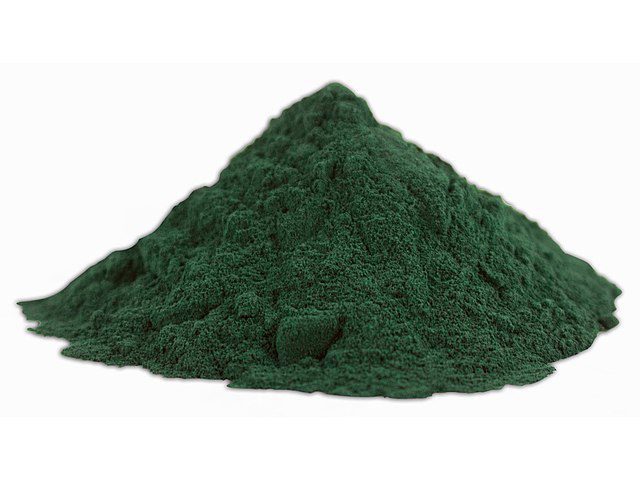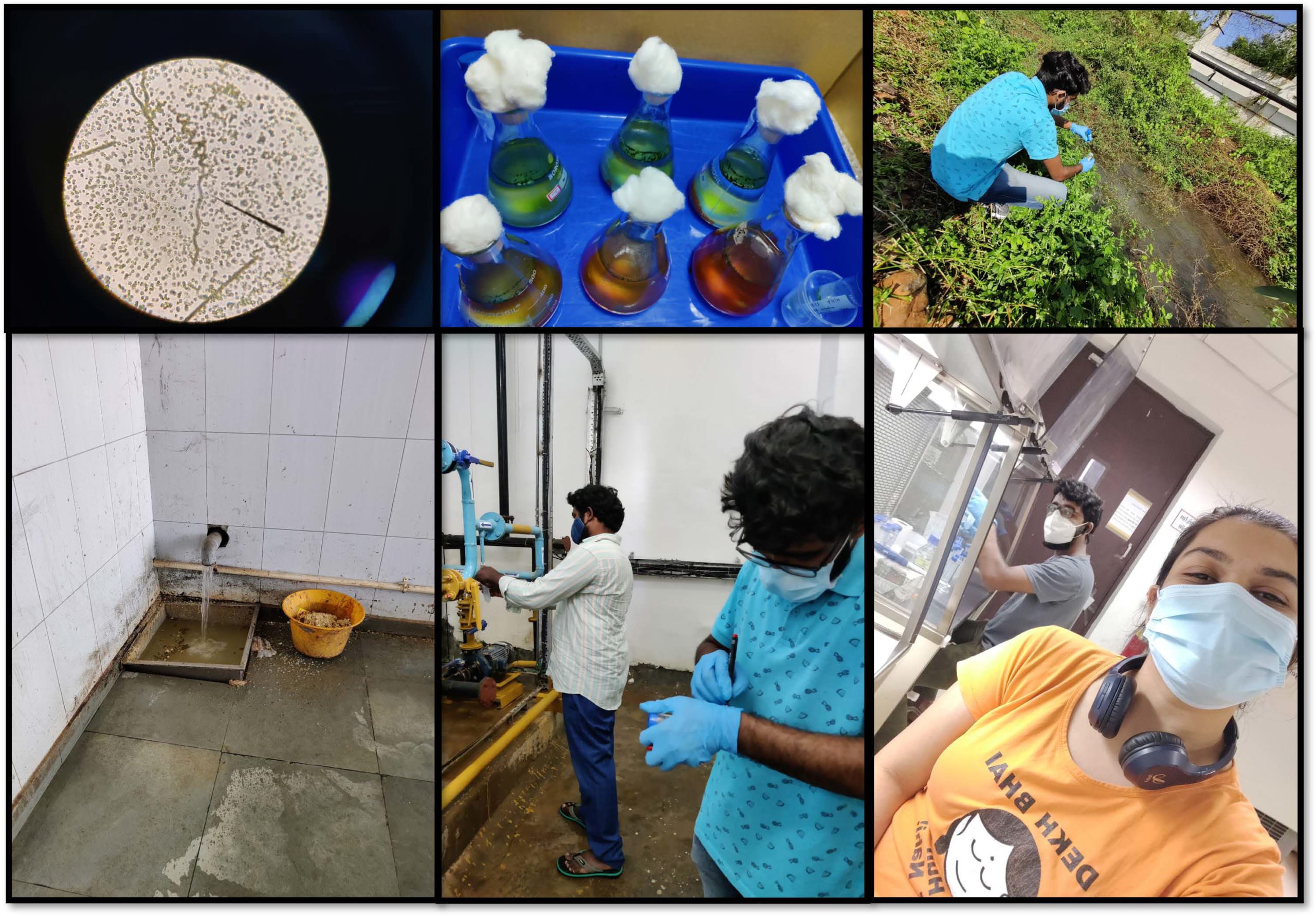
Spirulina, a blue-green algae with strong nutritional and antioxidant effects. Wikimedia Commons.
India EATS, a research group devoted to alleviating iron deficiency in India, was recently awarded a Seed for Change grant by the Mittal Institute. Led by Kumaresh Krishnan, a Harvard doctoral student in the Department of Molecular and Cellular Biology, and his colleagues from the Indian Institute of Science Education and Research in Tirupati, Shreyas Samir Parkhie and Shubhra Singhal, India EATS explores using alternative therapeutic strategies to enhance nutrition. The team focuses on using the algae Spirulina – a nutrient-dense, blue-green algae used as a nutritional supplement. Nutrients for growing Spirulina can be sourced from industrial and domestic wastewater, simultaneously reducing environmental stress while benefiting healthcare. India EATS proposes bringing these solutions together to create an iron supplement for the masses. The Mittal Institute checked in with them for a mid-year update on their Seed for Change project.
Apply for a 2022 Seed For Change Grant
Our project set out to Eradicate Anemia Through Spirulina (EATS). The critical part of our work was to establish Spirulina quality and iron content when using wastewater sources as a growth medium. The specific strain used was Arthrospira platensis and will be referred to as Spirulina from here on. After the Spirulina was grown and a quality analysis was completed, we planned to carry out an extensive outreach phase, while moving to a large-scale, decentralized production. As a refresher, the schematic of our proposed solution is shown in Figure 1.

Figure 1: Schematic of our proposed solution. Individual image source: Internet.
We envisioned the start of our work to be around June 2021. However, procurement of chemicals, gathering Spirulina culture, and industry visits were all delayed due to the pandemic. Access to laboratory space at IISER Tirupati (our base institution in India) was also impacted by delays in the return to campus.
Given this setback, our work began in late September, and we covered a lot of ground in just a few months. A few milestones include obtaining Spirulina culture from Council of Scientific and Industrial Research – Central Food Technological Research Institute, Mysuru (CSIR-CFTRI); procuring wastewater samples from different sources; and outreach to local self help groups (SHGs) and farmers to draw up strategies for the next phase of our project.
Next Steps
The critical part of the first phase is a thorough analysis of iron concentration, ensuring the quality of samples, and culturing iron fortified Spirulina. We have sent samples of our different cultures for an initial estimate of iron concentration from CSIR-CFTRI and are awaiting results.
Based on our results, we will identify a suitable waste-water source and an appropriate iron concentration. The iron fortified Spirulina culture will go through a rigorous quality check before we can deem it fit for consumption.
We look to build on our outreach efforts while also focusing on our quality control procedures. A small-scale test drive will eventually be set up within IISER Tirupati, and we will build our growing network of local farmers and SHGs in the meantime.
Extended Impact
In this short stint of working on the Seed For Change project, a culture of innovation has been created at IISER Tirupati. The potential impact of our work coupled with coverage by local print media has motivated many students to brainstorm along the lines of more Seed For Change ideas, some of which may even morph into grant applications in the coming year.
The Team In Action
Along with our faculty mentor from IISER Tirupati, Dr. Vasudharani Devanathan, Dr. Harshini Chakravarthy has also been an integral member of our core group. We have had fruitful interactions with Dr. Vikas Jain (CSIR-CFTRI), Dr. Alok Srivastava (CSIR-CFTRI) and Prof. K.S.M.S. Raghavrao (IIT Tirupati).
Some of our on site work has been shown below.

On site work (top left) Spirulina culture under microscope (top center) Spirulina cultures under di erent conditions (top right) Shreyas collecting groundwater as a growth medium (bottom left) kitchen waste water source (bottom center) sourcing wastewater from a treatment plant (bottom right) laboratory work – Shubhra and Shreyas.
